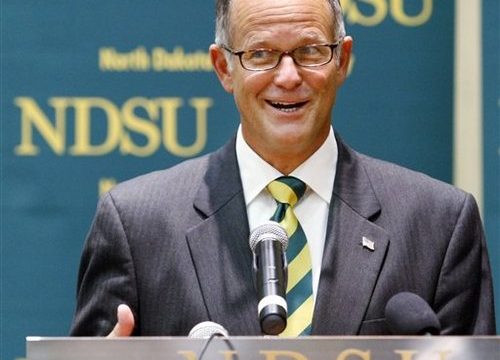North Dakota's Higher Ed Problems Don't End With Hamid Shirvani

The Fargo Forum editorial board has called on embattled Chancellor Hamid Shirvani to resign. Today the Grand Forks Herald says Shirvani ought to apologize for his management style to date.
Shirvani can certainly be polarizing. He is blunt and not always very politically savvy (which is an odd criticism of him coming as it does from higher ed apologizes who grouse about “politicizing” the university system). But focusing criticism on Shirvani misses the boat. North Dakota’s university system was dysfunctional long before Shirvani got here.
Also, the state’s university presidents do not have clean hands in this food fight.
But you don’t have to take my word for it. Forum Communications reporter Ryan Johnson wrote an excellent article detailing thousands of emails sent by the state’s college presidents in which its clear that, far from trying to work with Shirvani, many of those presidents set out to undermine him.
“Although many campus leaders will probably be there, the approach we’re taking is to purposefully NOT be there so that I/we can’t be asked what we think about the Chancellor’s plans,” NDSU President Dean Bresciani wrote in the email to NDSU Provost Bruce Rafert, referring to a legislative hearing he also warned could get “ugly.”
In other words, Bresciani and his colleagues didn’t want to clear the air with Shirvani. They wanted to hang him out to dry before the legislature.
Bresciani also joked in an email to his executive assistant Barb Pedersen that they should “start getting bids from movers” for Shirvani after a student group cast a vote of “no confidence” in the chancellor.
I was a precocious child, and when I got into fights in elementary school my fourth grade teacher always told me that they “didn’t happen in a vacuum.” That maxim applies to the situation in higher ed. Perhaps it’s fair criticism to say that Shirvani is brash and overbearing. But then, it’s also fair criticism to point out that he’s been tasked with managing university presidents who don’t want to be managed, and who have actively sought to undermine his leadership.
The university system is in chaos. It is producing academic outcomes that are about as mediocre as they are expensive. Costs to taxpayers and students have risen quickly, but performance has not. But, again, that was a problem before Shirvani came. And if resignation is appropriate for Shirvani, perhaps it is appropriate for certain university presidents as well.







